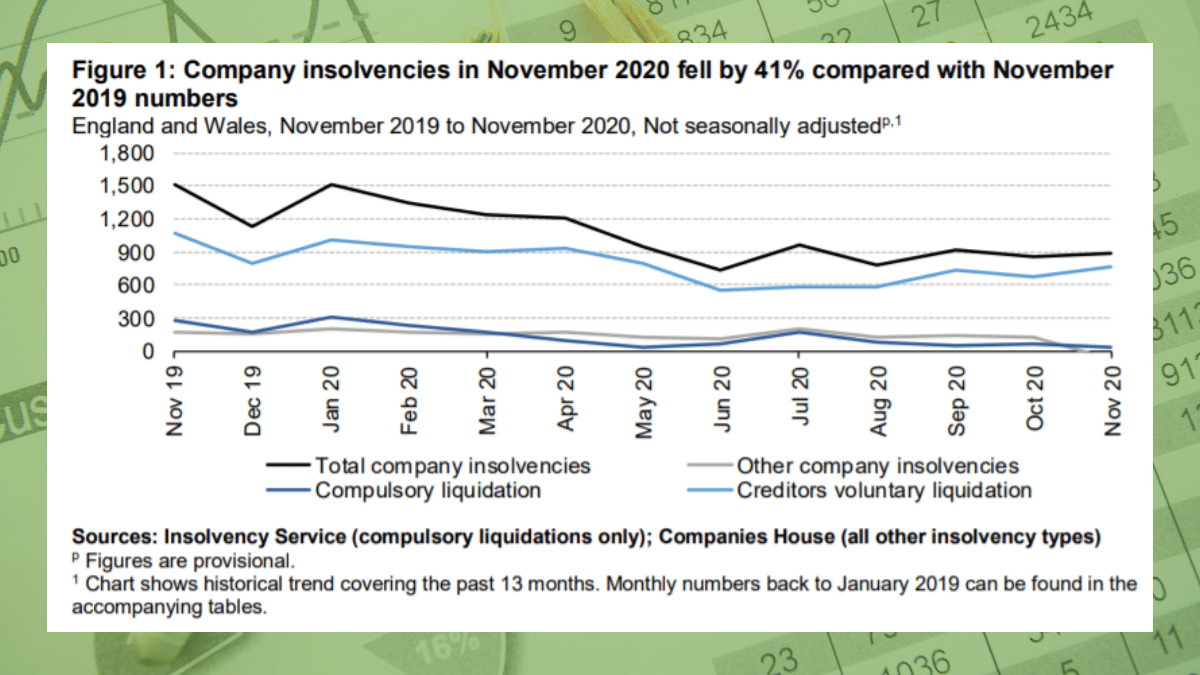Insolvency Practitioner Things To Know Before You Buy
Insolvency Practitioner Things To Know Before You Buy
Blog Article
Some Known Questions About Insolvency Practitioner.
Table of Contents4 Easy Facts About Insolvency Practitioner DescribedThe Of Insolvency PractitionerThe smart Trick of Insolvency Practitioner That Nobody is Talking AboutSome Known Incorrect Statements About Insolvency Practitioner 9 Easy Facts About Insolvency Practitioner ShownSome Known Details About Insolvency Practitioner Insolvency Practitioner for Beginners
Insurance policy is checked and regulated by state insurance divisions, and one of their main purposes is safeguarding insurance holders from the risk of a firm in monetary distress. When a business enters a period of economic trouble and is not able to satisfy its obligations, the insurance policy commissioner in the firm's home state starts a processdictated by the legislations of the statewhereby efforts are made to help the company reclaim its monetary footing.If it is identified that the business can not be refurbished, the firm is proclaimed financially troubled, and the commissioner will ask the state court to order the liquidation of the company. [Back] The insurance policy commissioner, either designated by the governor or chosen, heads the state insurance coverage department and screens and manages insurance activity within the state.
[Back] By obtaining control of a company, the commissioner (or the insurance department) is, by regulation, the rehabilitator or liquidator of the firm. In this ability, the commissioner or department takes control of the firm's procedures. Instead than do so directly, the commissioner might retain an unique deputy receiver to supervise the business's tasks - Insolvency Practitioner.
Rumored Buzz on Insolvency Practitioner
The receiver oversees an accountancy of the company's possessions and liabilities and carries out the estate of the firm. In doing so, the receiver seeks to make the most of the business's properties, transfer them to cash, and then distribute that money to creditors having valid claims versus the insurance company based on repayment concerns defined by state legislation (in all states, policyholders are top priority complaintants whose insurance claims are paid before those of general creditors).
All insurer (with limited exemptions) licensed to market life or health and wellness insurance policy or annuities in a state need to be members of that state's guaranty association. The warranty association accepts the commissioner and the receiver in pre-liquidation planning. Once the liquidation is gotten, the warranty organization provides coverage to the firm's insurance holders that are state homeowners (approximately the degrees defined by state lawssee listed below; any kind of advantage amounts over the warranty asociation advantage levels end up being claims against the business's continuing to be assets).
Top Guidelines Of Insolvency Practitioner
The above insurance coverage degrees apply individually for each insolvent insurance firm. [Back] When an insurance firm fails and there is a deficiency of funds needed to fulfill the responsibilities to insurance policy holders, state warranty associations are activated. Guaranty organizations have two primary sources of funding when giving insurance coverage to insurance holders. First, warranty organizations have subrogation rights to a proportional share of the properties continuing to be in the failed insurer.
Second, insurance companies doing organization in that state are assessed a share of the quantity needed to satisfy the section of the warranty associations' protected cases not or else funded with estate properties. The quantity insurance companies are examined is based on the quantity of costs that they gather in that state. The National Organization of Life and Health Insurance Coverage Warranty Organizations (NOLHGA) is made up of the life and wellness insurance policy guaranty organizations of all 50 states and the Area of Columbia.
NOLHGA develops a task force of depictive warranty organizations to work with the insurance commissioner to establish a plan to protect insurance policy holders.
How Insolvency Practitioner can Save You Time, Stress, and Money.

Predictive defense by assisting you choose the appropriate clients and the ideal markets to avoid uncollectable loan in the initial place, many thanks to acute financial evaluation. In-depth market intelligence, offering you with 360-degree visibility on company sectors and putting at risk problems. It would be a simplification to think a profession credit rating insurance coverage starts and ends with costs and pay-outs.

Not known Factual Statements About Insolvency Practitioner
It can lead to work losses, asset sales, and even personal bankruptcy. It is very important to comprehend exactly how corporate bankruptcy works and exactly how it can affect your organization. Why does a firm get in into bankruptcy? There are a variety of reasons a business may enter right into bankruptcy. One of the most common factor is that the business is not able to pay its financial obligations as they drop due.
Other official site reasons for bankruptcy include fraudulence, mismanagement, and unanticipated costs. Bankruptcy can additionally lead to work losses and the closure of companies.
Insolvency Practitioner - The Facts
The firm might be forced to market assets, lay off staff or also shut down. Creditors may be left out of pocket and the company's shareholders might see their investment disappear.
This can take place for a variety of reasons, consisting of poor monetary monitoring, unexpected prices, or a change in the marketplace. If a business is insolvent, it might be forced to fold or liquidate possessions to pay lenders. This can have a significant influence on business, staff members, and investors.
It can cause task losses, property sales, and also personal bankruptcy. It is essential to understand how corporate bankruptcy works and how it can influence your company. Why does a company participate in insolvency? There are a number of reasons a company may become part of insolvency. The most typical factor more tips here is that the firm is unable to pay its debts as they drop due.
A Biased View of Insolvency Practitioner
Other reasons for bankruptcy consist of scams, mismanagement, and unforeseen expenses. When a firm ends up being bankrupt, its assets are made use of to repay its debts - Insolvency Practitioner. This can have a major influence on the company, as it may no more have the ability to proceed running. Insolvency can likewise bring about job losses and the closure of services.
The business may be required to sell possessions, lay off team or even close down. Lenders may be left out of pocket and the business's investors may see their financial investment vanish.
Report this page